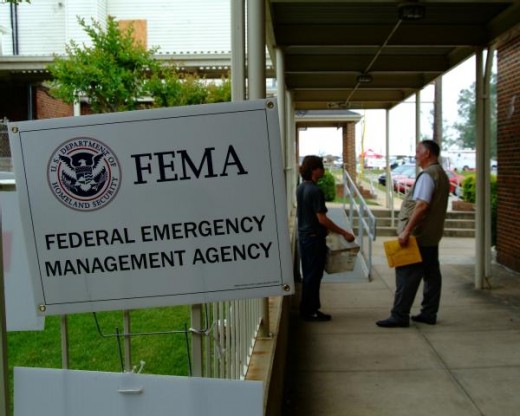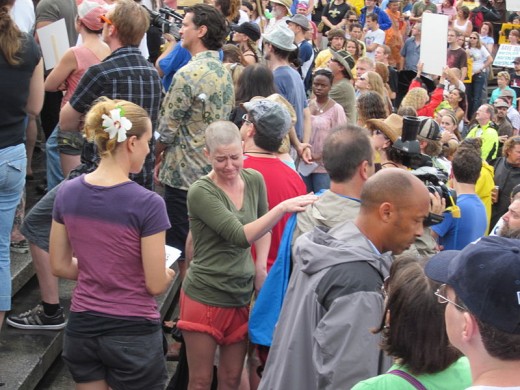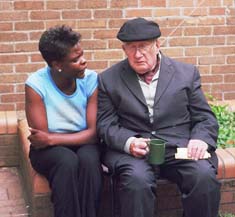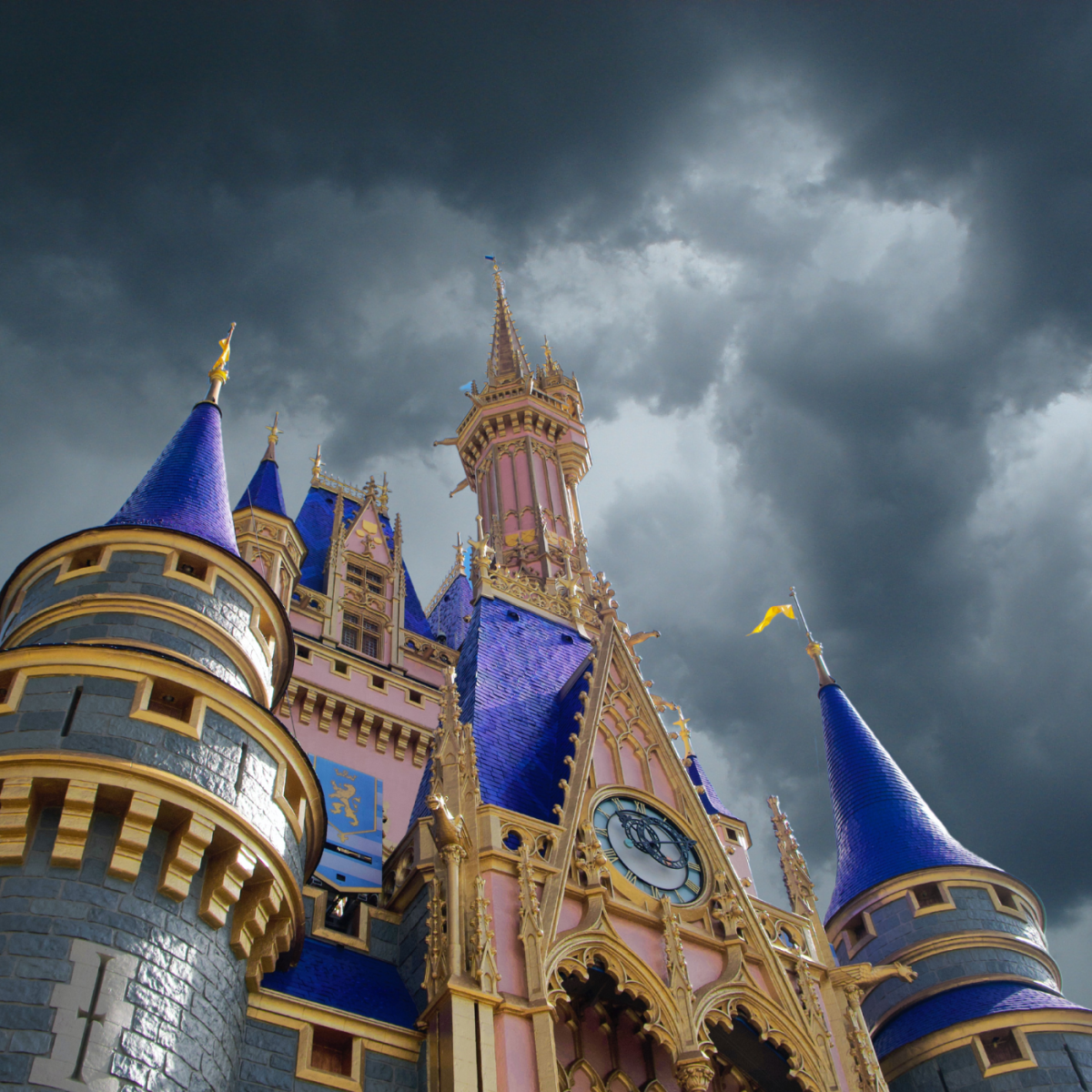Psychology of People in the Aftermath of a Disaster
There is the Storm and There is the Aftermath
Disasters, no matter where they happen in the world, whether natural or man created, always make big news. The media shows the most sensational damage and the event becomes the focus of most of the information we receive.
After a few days, the news goes on to other topics and most people go back to their everyday lives, occasionally perhaps, hearing an infrequent story about the latest updates, and we assume everyone is pretty much back to normal. With storms, earthquakes, tornados, forest fires, tsunamis, volcanoes and other disasters, the war-like scenes we see from the storm, are only the beginning of the uphill battle that the disaster renders upon its victims.
For the people impacted by devastation, there is no normal for a very long time. No one can really understand what this truly means, unless you are the one directly affected by a hurricane, a war, an earthquake, or other mass destruction to your community and your home. There is the storm, and there is the aftermath.
Emergency Response Teams Arrive at Disaster Areas

When Disaster Strikes
As the news fades, and the sensational headlines become history, what happens to the people who struggle to put their lives back together, to the volunteers who dedicate themselves to helping them, and to the employed people who must work non stop, some coming from all over the country, to assist in the recovery? A disaster has many victims, including relatives and friends who live far away. Even people who watch the events through the media can be affected. Children can be especially impacted and it is important to give special attention to their psychological and emotional needs. .
Many Personalities, Many Reactions

People Have Different Reactions to Situations
There are many different variables, many kinds of situations, and many different personalities that will affect how people react to the conditions they are exposed to. Some people had it much worse than me. Some people had it better than me. I am not trying to cover all possibilites, I am only speaking from my own perspective and knowledge so that if you or someone you know goes through a disaster, possibly you can gain some clarity about the situation and find a way to get or give comfort and support, even in small ways.
On October 29, 2012, hurricane Sandy hit the northeast, combined with another storm, a full moon, and at the hour of high tide, it became storm of mass proportions, known as a super storm. Hurricanes rarely make it up this far north in the first place. I live four miles from the Atlantic Ocean and a mile from a bay, so the idea that a storm would hit with such force that I would wind up with fish in my backyard and extensive damage to my home seemed a near impossible event to me. As the forecasters put the weather scenario together, we knew it would be big storm, especially closer to the ocean, but no one could have estimated the severe damage Sandy would really do. Had it not occurred at high tide, I most likely would have been spared. But it happened, and I must now move forward.
This article is about the emotional phases people go through when disaster strikes, using my own experience.
Super Storm Sandy, a Hurricane of Mass Proportions
Before the storm, when the weather forecasters began to talk about Sandy, I took the predictions seriously and prepared as best I could for the storm. I had plenty of flashlights, I filled the car with gas, I took some cash out of the bank, and then we waited.
- Preparing helps you deal with the challenging situations that befall a disaster.
- Emotionally, there is no way to prepare for the conditions one must endure when nature turns everything upside down.
After the storm hit, I now claim a title, I never ever thought I would say about myself, my family, and my friends. I am a hurricane survivor, something I wish I never had to say. Why did I think I would never call myself this? Because I live in New York, a place that rarely gets a hurricane that would have any lasting impact. I have had many difficulties and struggles that I have had to get through. This event is a different kind of hard, at this point, 6 weeks since the storm, the work, and the hardships have been nonstop, and it doesn't look like they will let up for awhile.
- As the disaster fades from the news, everyone thinks things have returned to normal
- Cleanup and restoration can take all year or longer
The thought of a devastating hurricane causing enough damage for my community to be called a disaster area seemed like something very far fetched. Never, ever did I think I would get mail with my name on it from FEMA. Never did I think the federal government would declare my 16 year old home, uninhabitable. Never did I think I would become dependent on the Red Cross and other charitable organizations for so many weeks. Never did I dream I would be taking handouts for basic needs. Never in my wildest thoughts, would I have believed, I would have no heat or hot water in my home to defend my family and I against the cold winter temperatures. Never did I imagine that the walls of rooms I designed, would be torn down. Never did I think I would have to rely on others for showers and laundry.
So much has changed so suddenly. Before the storm we were repainting rooms, now I have to rebuild them. It is one thing to worry about paying bills, and it is another to worry about having enough money, just to make your home livable again. This is what my reality is right now. And I can only focus on moving forward so that things will get better. I only talk about these things because there are emotional ramifications to the aftermath of a disaster that everyone goes through.
Super Storm Sandy Hit Long Island, NYC, and Parts of NJ Hard
Disruptions and Disasters Cause Many Emotions
It is rare for a hurricane of any magnitude to make it this far north. In New York, weather does not have any long term impact. We get annoying snowstorms in the winter, which cause ice and slippery conditions, and the need to shovel, but the area is usually up and running within a few hours, or a day at most. As the hours grew closer for superstorm Sandy’s approach, I felt some slight anxiety, mostly because I didn’t know what to expect.
- Feeling anxiety over the anticipation of something is a natural reaction. But not all disasters, such as earthquakes, or events like 9/11 can be anticipated.
When the storm hit, it was nighttime and our power went out. The streets flooded. My finished basement filled with five feet of water, and it sounded like a river was flowing inside my house. My backyard filled up so high with water, it came within inches of coming into my first floor through my sliding glass door. I could only watch with helplessness. There was nothing I could do. We never felt threatened or endangered by the flooding waters. Our house was high enough to give us protection. For the people in some areas who had to be rescued, their experience took on a different traumatic experience. For me, the feeling of helplessness as I watched the waters rise higher and higher, destroying cars and invading my home, is something that will stay with me always.
- Feeling helpless is the beginning of the stress and other mental health consequences, witnesses and survivors to a disaster must deal with.
- Feeling helpless may make some people feel like they have no escape and can cause some people to panic.
- Feeling helpless can sometimes lead to post traumatic stress disorder (ptsd)
Emotions and Disasters

When morning broke the next day, I looked at what had happened to my home and my neighborhood. Our land line phones and our cell phones were not working at all. With no way to contact the outside world, or the outside world to contact us, I felt a sense of isolation. The waters on the street had receded from the night before. So all the neighbors went outside to connect with each other, to share what we saw, what we lost, what we experienced, and what we felt. It was good to know that my neighbors were safe and okay. Our houses all were standing, and except for our roofs, there were no visible signs from the outside of what had occurred just a few hours before.
Yet, inside our homes, all the destruction, all the cleanup, and all the heartache was yet to begin to be processed by all. None of us could fully comprehend what we were about to really go through. We all felt overwhelmed. With the cell phone towers being flooded and the electricity out for two weeks, no way on or off Long Island in the first few days because all the bridges were closed, a gas shortage for three weeks, and a sudden five inch snowstorm a little over a week after the hurricane, our neighborhood bonded together in the first few weeks.
- Shock and denial is the first phase of processing the trauma.
- People often seek out other survivors.
- People recover best in groups
The Aftermath of the Storm Begins
With no electricity many gas stations could not pump their gas. Those that could, quickly ran out. Deliveries could not be made because debris in the ports blocked the oil tankers from bringing the order in. Particular to our situation, the blackout continued for 14 days and we got a 5 inch snowstorm 9 days after the hurricane hit Long Island. It became increasingly difficult to get beyond the effects of the storm. There were shortages of black plastic bags for the cleanup. The gas shortage, which continued for nearly 3 weeks, made things even more difficult. Boilers and hot water heaters, electric boxes, all damaged from the flooding, caused shortages for these needs.
In the days and weeks that followed, our community began to splinter. Some left to temporarily live in areas that were not suffering as greatly. Each of us had problems that were uniquely different, some posing more difficulty than others. Some people lost cars. Some people had feet of water landing in their home, some had feet of sand in their home. Some had oil spills that caused toxic conditions, forcing their houses to be condemned. Some lost their homes due to flooding. Some risked their lives, when they were in areas they should have evacuated.
For me, as I cleaned out from the water's damage, it was painful to watch my possessions be carried out by workers who were doing a job, but who my stuff meant nothing to. While I kept the perspective that it was only stuff, it represents a part of my life that is gone. Some things my mother had given me, mementos of my childhood, and some were just the things that were part of my home. The whole room was built 12 years ago, reminders of a happier time, designed for a future that would hopefully be fun. It is not the stuff that I miss, Each day I remember something else I don't have anymore. But the culmination of holding the sopping wet videos of my children growing up, videos of our family vacations, and celebrations that we thought we captured for a lifetime, is what brought me to tears . Some things are irreplaceable, but I must accept what is.
This storm forced change, one I was not emotionally prepared for, and one that is leading me in a direction I can not readily see yet. When you meet a hurricane survivor, they hurt in ways you can not see and in ways they can not express. The desire to go forward and put this behind me is strong, but not simple.
- There is a grieving process for what is lost, and a loss on one level is a reminder of other losses the person has endured.
- When disaster strikes, victims need a sense of stability, a sense of order, and emotional support. That is why it is important that emergency response centers start up quickly in the areas affected. People rely on FEMA, the Salvation Army, Red Cross, insurance companies, religious affiations, and family and friends for basic needs..
- Focusing on activities and keeping busy help survivors cope better.
- Natural support networks become integral in the healing process. When family, friends, and religious groups reach out, victims feel less isolated. People who have been through traumatic events may find comfort in talking about what they have been though. They need to feel that they are cared about, and can share their feelings of grief, of pain, of loss, of their experiences.
If you are trying to comfort someone that has been affected by a disaster, here are some suggestions:
What to do:
| how to do it:
| Other Notes:
| What not to do:
|
|---|---|---|---|
be empathetic
| listen and let the other person talk about what is on their mind
| draw upon some of your own experiences to help yourself relate to what the other person is going through
| Don’t take ownership of what has happened to them to avoid creating any of your own anxiety.
|
be a good listener
| listen for meaning, not just words
| what is their body language, facial expressions, and tone of voice like
| don’t challenge them, just be a good listener.
|
show them you are listening
| paraphrase what they are saying by repeating phrases they have said
| this helps people in discomfort greatly and reinforces communication between each of you.
| Don’t put words in their mouths, don’t finish their sentences.
|
Although this is not that common from disaster situations, it is important to look out for suicidal behavior, psychotic behavior, or an inability to care for themselves or signs of depression or high anxiety
| refer them to mental health providers so they can get needed support.
| Be mindful that many people undergo temporary personality changes from the distress.
| Don't try to counsel them yourself
|
Things to Say

Things to Avoid Saying
- I understand - you might think you understand, but the comprehension from someone not living and enduring the event is very limiting, unless you have experienced it too.
- Don’t tell the person not to feel bad about what has happened - terrible things have happened to the survivor, and they have the right to feel. As time goes on, the person will begin to feel differently, but only as they heal, not because they are told to.
- Don't tell them it is only stuff they lost - let them tell you that. You don't know what meaning their things had to them.
- Don’t tell them they are strong or tell them to just get through this - it is hard to feel strong when nothing is right in your world. Intellectually they may know they will recover from this, but emotionally they can’t see their way clear yet.
- Don’t tell someone not to cry - there are an array of emotions survivors go through. Many of these feelings are overwhelming, and crying is a healthy outlet for their emotions.
- Don’t tell someone it is God’s will - Some people do not have the same religious conviction as others do. Some people’s faith is shaken and they may even have doubts about their religion.
- Don’t say others have it worse, or it could be worse - the loss to that individual is great to them, and even though there are worse, it offers little comfort for what they are going through.
- Don’t tell them their story is the worst you have heard - no one wants that prize either. A survivor of a disaster didn’t ask for this to happen. Their pain and sadness is not lessened by confirmation that they have it so hard.
- Don’t tell them everything will be okay - they don’t need to hear that from someone else, in time, let them tell you when things will be okay. It is hard for a person who has just experienced devastation to see things in the future. They are usually overwhelmed with what has happened, and all they need to do.
- Don’t bark orders at them - remember they are enduring unusual and stressful situations, which can cause cognitive problems with remembering things, with reacting to things, and managing all they have to do. What may seem simple to you, can be overwhelming to them.
- Avoid confrontations - stress and severe disruptions can cause irritability and angry outbursts. They may even undergo temporary personality changes and act out of character. As they get used to a new normal, they will get back to being more of themselves.
What is Helpful to Say
- tell them you care
- help them solve problems they are trying to deal with
- let them know they are not alone
- offer your support in anyway that is comfortable for you
- be sincere
- be aware that the survivor is under prolonged and exteme stressful conditions
- let them need you
- keep in touch with them frequently
- help them feel safe and secure
- encourage them to take care of themselves
- be sensitive to them and their needs
What are Normal Reactions to Extraordinary Events
- It is common for people who are trying to recover from a disaster to fear that it will occur again. People have a wide range of emotions, some will have mood swings, sadness, depression, grief, anger, anxiety, irritability, agitation, feelings of guilt or shame, difficulty concentrating, memory problems, relationship conflicts, which all can range from mild to severe.
- People enduring stressful conditions can elicit physical symptoms such as loss of appetite, chest pain, headaches, intestinal discomforts, hyperactivity, nightmares, alcohol and drug abuse, sleep disturbances, low energy, and fatigue.
Natural disasters threaten a person’s sense of safety. Often this can lead to feelings of insecurity. Some people may have anxiety or panic attacks. Some people withdraw from those around them. Some people may become more fearful that another event may occur giving them a feeling of impending danger. Some people may become startled easily. This can cause a person to be on alert and vigilant all the time. When your brain is always on, it can cause problems with judgment, with thinking, and with decision making.
Powerlessness and lack of control can make a person feel more vulnerable and needy. People enduring the aftermath of a disaster may feel constantly tired, or they may be on edge all the time. These are all normal reactions to extraordinary events. Survivors don’t necessarily need professional help, although it doesn’t hurt to talk to a mental health provider or clergy either. Some people manage through tough times better than others.
Feeling sad or depressed over the situation is common. People need to grieve over their losses, the changes and adjustments that occur, and the uncertainty that lies ahead.
A lot of Little Changes Make for Big Stress
It has now been six weeks since Super Storm Sandy turned my community into a disaster area. Many stores have reopened, but some are not ready yet. My bank has significant damage and they don’t know when they will reopen that branch. I knew everyone who worked there, and they knew me. It is not a big deal to walk into another branch, but it is another change, it is one more thing that is different to my routine. My favorite food store, Trader Joe’s was condemned, and although there are plenty of food stores, it is one more change to adjust to.
My basement is still being cleaned out and I will need to spend all year repairing my home. I am different right now. I am not able to be as creative as I usually am. It is hard for me to think ahead, to dream about a future, to think forward, when each day, I am trying to meet basic needs like keeping warm. I am trying to create order, clean up from the mess, and restore some order in my home and my life. I miss the way things were. I know things will return to normal one day, but I don't know what normal will be. I also know there is a lot work I have to do before that can happen.
- Many people are displaced from their home when a natural disaster occurs.
- Many people lose their jobs and may be financially impacted with repairs.
- Abraham Maslow’s Hierachy of Needs shows that people must have basic needs met before they can achieve other psychological needs.
- Changes, especially unexpected ones cause a lot of stress
- People who experience disaster situations may develop PTSD (post traumatic stress disorder)
- Constantly being "on" causes temporary personality changes

The Process of Healing
The initial cause of the disaster and the immediate visible effects make all the news. The aftermath is a long process that is filled with mixed emotions, from:
- optimism at the beginning, because disaster assistance provides a lot of support and an increase in morale.
- Optimism turns to disillusionment, as survivors realize the limitations of insurance and the assistance that was there at the beginning stops. This leads to negative emotions such as disappointment, anger, resentment, and frustration.
- As survivors are left to accept a “new normal”, the reality of their situation can cause grief and anger. Eventually, people learn to accept that they have to rebuild their lives and move forward and adjust.
For me, I am only at the stage of trying to accept what little control I had. This hurricane was destined to hit my home, and there was nothing I could do about it. I don’t like thinking of myself as a victim who couldn’t do anything. I prefer to call myself a survivor, it helps me feel like I am able do something. It is a long process of dealing with what has happened and a long term process of healing,
I have gone from bewilderment to powerlessness to feeling anger that this happened. I have become forgetful and inefficient. I feel burdened. I know I will get back to my old self again, but right now, it seems very far away. Now I spend my days overwhelmed, trying to not be cold, and consumed by all I have to do. And all I am trying to do is just get back to basics. I battle with my pride as I struggle in ways I never imagined. Nothing is fun right now, but I try my best to keep my sense of humor.
Thank you for letting me share my story with you. It helps me greatly to write about it. I speak from my own perspective, but there are universal aspects to what I am going through. Getting beyond a disaster is difficult for everyone involved. Unfortunately, there will be other disasters, and these universal feelings may affect you or others you know. You can help make things better for the people you care about by gaining a better understanding of what the survivors are dealing with. Be patient, be kind, and know that with your support they will see that everything will be okay one day again, however long it may take.








